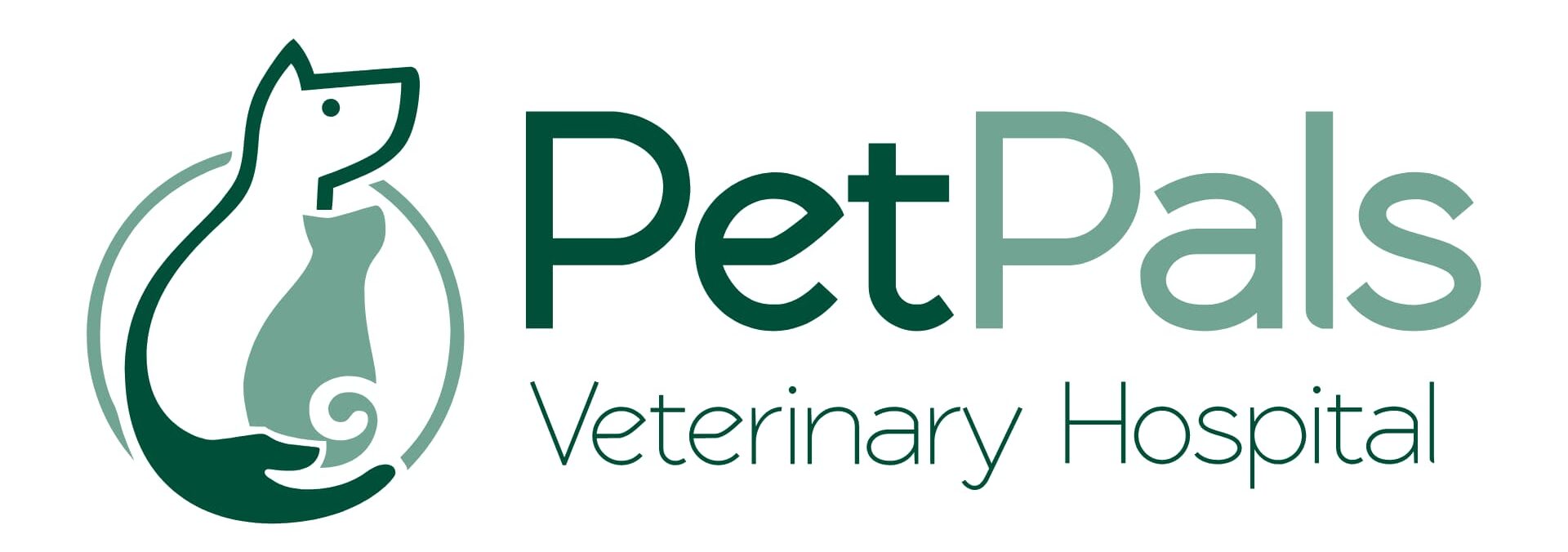Our Services
Dental Care
According to the American Veterinary Dental College more than 80% of dogs and 70% of cats have dental disease by the age of 3. Dental disease can be very uncomfortable for pets and the longer it is left untreated, the more complicated and expensive it becomes to treat. Furthermore, improper care of your pet's teeth can often be the cause of serious illness. If left untreated, dental problems can lead to larger systemic problems in your pet due to oral bacteria entering the bloodstream and damaging the kidneys, heart and liver.
If your pet is experiencing any of these symptoms, please make an appointment immediately:
- Yellow or brown buildup (tartar) on the teeth
- Red, swollen, or bleeding gums
- Bad breath
- Excessive drooling
- Changes in eating or chewing habits
- Pawing at the face
- Loose teeth
- Depression
Oral Exams
Proper dental care is one of the easiest ways to protect your pet’s health and keep them pain free. During your pet’s oral exam, we will examine your pet’s mouth, teeth, and jaw. We may recommend x-rays to assess the health of your pet’s tooth roots as well. Regular oral exams, help prevent irreversible dental disease, tooth loss, and possibly expensive oral surgery.
Teeth Cleanings
Your pet's dental cleaning will begin with a physical examination so that we can evaluate your pet's general health. After the physical exam, your pet will be given an anesthetic for a safe and painless teeth cleaning since most dental disease starts below the gumline. The first part of dental cleaning requires the removal of tartar using a hand scaler. Next, an ultrasonic scaler is used to clean above the gum line while a curette cleans and smooths the teeth under the gum line in the crevice between the teeth and gums. Then your pet's teeth are polished, and the gums are washed with an anti-bacterial solution to help delay tartar build-up.
Extractions and Advanced Procedures
Our veterinarians will only recommend tooth extractions if we believe it is necessary for your pet’s wellbeing. We usually recommend this when we identify that your pet has an infected or broken tooth that is likely causing them pain. In the case that we recommend a tooth extraction, we will discuss what this means for your pet and how to properly care for them while they’re healing.
How To Prevent Dental Disease Before It Begins
Regular wellness visits allow us to check your pet’s mouth and teeth and identify issues before they progress. Additionally, at-home dental care, including regularly brushing your pet’s teeth and using teeth cleaning treats, can prevent plaque from building up. Lastly, avoid hard toys and bones that can potentially damage your pet’s teeth.
Diagnostic Imaging
We offer medical imaging to aid in the diagnosis of many different conditions. Radiographs and ultrasound are painless and noninvasive ways to evaluate organs and bones, allowing us to better understand what is occurring in a pet’s body. In some cases, medical imaging can detect conditions and situations that may otherwise have gone undetected for months or years. Our state-of-the-art radiology and ultrasound are conducted by our trained and compassionate staff, making it both safe and effective.

Diet and Nutrition
Proper nutrition is one of the easiest ways to keep your pet healthy. At Pet Pals Veterinary Hospital, we offer individualized nutrition counseling and customize a recommendation for your unique pet. Dr. Olden-Stahl will perform a thorough body-condition evaluation during every physical examination and can give nutritional recommendations based on what we see. She can also provide you with important information on proper serving size, nutrient needs, and feeding strategies for your individual pet.
End of Life Care
We understand that regardless of the situation, saying good-bye to a beloved pet is one of the most difficult situations a pet owner will ever make. Our staff of compassionate, caring professionals can help you through this painful experience. We will work with you to ensure your pet's comfort and dignity during their last days and final moments. We are happy to accommodate special requests and help you make arrangements for cremation or other options. Sedation will be administered prior to performing the euthanasia to ensure your pet is at ease. We are here to help you through this transition and make this process easier for you.
If you would like to assess your pet's quality of life, please use this Quality of Life Assessment from Ohio State University.
Laser Therapy
Laser therapy applied with the Companion Class IV Laser System provides a sterile, pain-free, surgery-free, drug-free treatment which is used to treat a variety of injuries, wounds, fractures, neurological conditions, numerous dermatological problems, and pain management.
Whether your pet is rehabilitating from trauma or injury, healing from wounds, or simply aging, your companion will benefit from this revolutionary new approach to Veterinary medicine.
Laser therapy actually stimulates the body to heal from within. Non-thermal photons of light are administered to the body and absorbed by the injured cells. The cells are then stimulated and respond with a higher rate of metabolism. This results in increased circulation from the body, an anti-inflammatory reaction, relief from pain, and an acceleration of the healing process.
What to expect during a Class IV Penetrating Laser Therapy treatment session for your companion?
Simply put, it provides relief. As the laser is administered, your pet will relax and enjoy, much like you, experiencing a good massage. The almost immediate relief of pain will allow your pet to be comfortable and any anxiety that your pet initially experienced will dissipate. Angry feline companions will start to purr and most of our canine companions will actually fall asleep during their therapy session. Frequently, after therapy, the quote is heard: “Our young animal is back” or “she acts like a puppy again.” Pain relief is provided in just a few minutes of therapy and that alone improves the quality of life for your best friend. You may view a video of a laser therapy session on YouTube.
Laboratory
We offer some in-house testing on-site but utilize several outside laboratories to offer a wide range of diagnostics for your pet, including cancer screening, vaccine titers, and Vitamin D testing. We also offer a variety of wellness screens based on your pet's age and health to help you better understand your pet's condition.

Microchipping
Microchipping is the most effective means of identification for your pet. Like vaccinations, microchipping is safe, quick and causes little pain. We always recommend that an ID tag be attached to your pet's collar, but the microchip will serve as an extra layer of protection if an accident does occur. Most veterinary hospitals and shelters are equipped with a handheld microchip scanner that can be used to check for a chip. If the pet has one, it will transmit its ID number to the scanner via a low-frequency radio wave. From there, they can retrieve the pet owner’s contact information from the manufacturer and call the owner.
AAHA Pet Microchip Lookup: https://www.aaha.org/petmicrochiplookup
HomeAgain Microchips: https://www.homeagain.com/about-microchips
Pharmacy
We maintain a fully stocked pharmacy to fill your pet’s prescription needs quickly and conveniently. We also encourage you to browse our online pharmacy for convenient delivery and additional products.
Puppy and Kitten Care
The dedicated team at Pet Pals Veterinary Hospital is here to help you ensure your puppy or kitten gets off to the best start possible. Make sure to schedule your new pet’s first appointment within the first few weeks of bringing them home. The initial visit provides us an opportunity to meet and offers you a chance to ask questions. We strive to address any concerns you may have about owning a puppy or kitten and teach you the best ways to care for your new family member. This is a special time for you and your pet, and we want to ensure you feel supported in this transition. Our comprehensive approach addresses your pet’s needs from vaccinations to a proper diet. During your pet’s first visit we will conduct a physical exam, develop a vaccine schedule, discuss your pet’s diet, and develop a parasite prevention plan. We will also discuss the importance of getting your pet spayed or neutered and microchipped.
Senior Pet Care
As pets age, their needs change. Pets over the age of 7 are more susceptible to diseases and heal more slowly, however, with proper care you can help your pet live a longer, happier life. Our team at Pet Pals Veterinary Hospital can help you navigate your pet’s senior years with you. We do recommend more frequent wellness exams which will help us detect problems before they become advanced. Additionally, we may recommend changes to your pet’s diet, exercise, and other aspects of their healthcare as they mature. It can be very difficult to detect when your pet is in pain, but there are some signs that they may be experiencing discomfort in their older years. If you notice any of the following, your pet may be in pain:
- Difficulty getting up, easing into a comfortable position or limping.
- Fatigue, including decreased stamina on walks.
- Reluctance to be groomed, picked up or touched in certain areas.
- Urinary or fecal accidents
If any of these behaviors begin to occur, visit us so a source of the pain can be identified, and treatment can begin.
Specialty Referrals & Urgent Care
Surgical Services
Pet Pals Veterinary Hospital offers a wide range of basic surgical services, from spays and neuters to soft tissue and orthopedic procedures. During your pet’s procedure, their safety and comfort are our top priority. We will develop a safe and effective anesthetic protocol for your pet to ensure they experience very little pain. Our state-of-the-art hospital is equipped with the latest anesthetic and monitoring technology to ensure your pet is safe and comfortable throughout their surgery. We are here to answer any questions regarding your pet's specific surgery and even offer a pre-surgical consultation as an essential part of the process. Your veterinarian will also provide information on postoperative care to ensure your pet is recovers quickly.
Vaccinations
Vaccinations are an essential part of your pet’s health care plan starting from the time they are very young. Pets should begin their vaccinations between 6 and 12 weeks of age and require boosters throughout their life. Many common diseases can easily be prevented by vaccinating your pet.
Core vaccines, or essential vaccines, for canines include rabies and DAPP. Core vaccines for felines include rabies and FVRCP. Depending on your geographical area and pet’s exposure, you may also consider optional, non-core vaccines. Noncore vaccines for canines include leptospirosis, bordetella, parainfluenza, lyme disease and canine influenza. Noncore vaccines for felines include feline leukemia.
At Pet Pals Veterinary Hospital we’ll help you create a vaccine schedule appropriate for your pet’s age, breed, lifestyle, and environment. We will also review any possible side effects of your pet’s vaccinations and how to address them.
Wellness Care
At Pet Pals Veterinary Hospital we recommend regular comprehensive wellness exams from the time pets are young. Wellness exams are a critical part of your pet’s healthcare routine regardless of size, breed, or age. Routine wellness exams are important to maintain your pet’s wellbeing and detect any medical issues before they progress. During your pet’s exam, we will assess their overall body condition, eyes, ears, mouth, internal organs and systems, skin and much more. We will also discuss any other recommended services, such as dental cleanings or diagnostic testing. If any areas of concern are identified during your pet’s exam, we will develop a treatment plan together.

